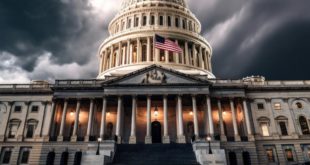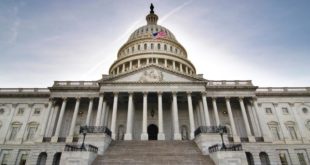While China achieved strong economic growth in the post-Mao years by allowing free markets to work, the Communist leadership wants to return the economy to its old socialist ways. However, while the government can give fake growth numbers, it cannot reverse socialist failures. Original Article: Overcoming Chinese Communist GDP Myths [embedded content]...
Read More »Can a Libertarian Find Hope in Prison? Maybe
Contrary to popular assertions, Ancapistan is a real place and is conventionally referred to as prison. In all seriousness, I have been living in the US federal prison system for four years now, and in many ways, prison society actually is fairly anarchic. Considering these societies (plural because prison culture is heterogeneous across geography and across institutions’ security levels) seriously should dispel any notions of humanity that could be categorized as...
Read More »Bourne Again
David Gordon reviews Only a Voice, by George Scialabba, dealing with the author's comments on antiwar progressives Randolph Bourne and Dwight Macdonald. Original Article: Bourne Again [embedded content] Tags: Featured,newsletter
Read More »The Anatomy of the Statist
The statist is a complex creature, composed of many parts, some of which are more obvious than others. No two statists are exactly the same, but many of them share a set of common elements. Studying these elements can shed light on why the statist is so wedded to their statism, and it can also shed light on what can be done to transform them into a civilized human being. The following list of elements is by no means accurate or complete. This is, after all, still a...
Read More »Napoleon: Europe’s First Egalitarian Despot
For those who value self-determination, free markets, peace, and freedom, Napoleon provides little to be admired. He was a despot, a warmonger, a centralist, and a hypocrite who claimed to spread freedom to justify his own lust for conquest and power. Original Article: Napoleon: Europe's First Egalitarian Despot [embedded content]...
Read More »How Did the U.S. Government Become So Big?
How big is the federal government? Two measures are the number of civilian employees (nearly two million) and the number of agencies (now exceeding 440). These numbers barely hint at their massive meddling into business activities and the personal lives of Americans. While government was relatively small and less intrusive during its first hundred years, the Constitution held defects. In part, they resulted from the unavoidable compromises of consensus. The founders...
Read More »Today Is the Best Day of the Year to Rob a Bank
Today, the Fed takes a short break from robbing us via inflation and, instead, delivers huge amounts of cash to banks to service Black Friday purchases. The large cash infusions often make banks vulnerable to robberies. Original Article: Today Is the Best Day of the Year to Rob a Bank [embedded content] Tags:...
Read More »Apartment Investment Syndication: A Predictably Unraveling Scheme, Thanks to the Fed
The apartment investment industry has experienced severe malinvestment over the last several years, resulting in a massive bubble that has only recently begun to deflate with rising interest rates. A tidal wave of easy money—enabled by the Federal Reserve and four consecutive United States administrations, from George W. Bush to Joe Biden—drastically lowered the barriers to entry. As a result, even those with no investment acumen have raised and used other people’s...
Read More »The United States Needs Its Own Javier Milei
While the United States has not fallen as far economically as Argentina, the fact is that the present economic policies are ruinous. We need someone like Javier Milei to speak the truth about what is happening. Original Article: The United States Needs Its Own Javier Milei [embedded content] Tags: Featured,newsletter
Read More »What Would Happen If the US Stopped Supporting Ukraine?
The standard line from US political elites is that failure to aid Ukraine would mean Russia's destruction of what is left of the country. However, the likely result would be a negotiated peace. Original Article: What Would Happen If the US Stopped Supporting Ukraine? [embedded content] Tags: Featured,newsletter
Read More » Swiss Economicblogs.org
Swiss Economicblogs.org




